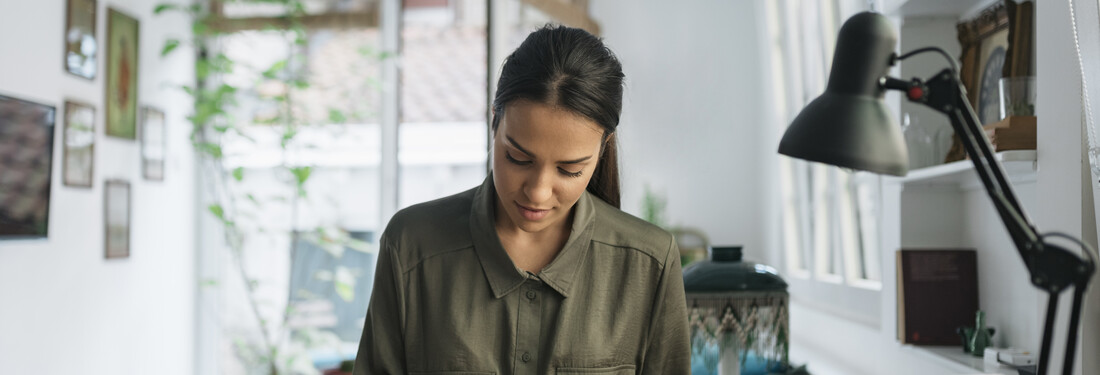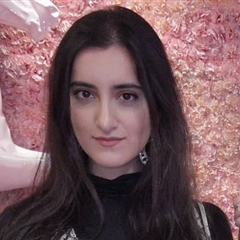How to handle project management job interviews: questions you might get asked

No matter how many times we’ve been offered an interview, once the excitement subsides, there are nerves that kick in because the role of our dreams is within our grasp, but we can't quite reach it. Interviews can throw the best of us in for a loop, and if you’re not prepared, you might stumble. We spoke to some of our volunteers and members about what they look for in project management candidates coming in for interviews. Here are some tips on how you should handle remote or in-person interviews including some of the most common questions interviewers will ask and how you should respond:
Start off by researching the role again. Once you’ve got the job interview scheduled, look at the role on your application and CV again. It might be a good idea to do some research, speak to colleagues or a mentor, and think about what sort of job you’ll be doing if you’re successful. Employers also know that a lot of graduates might not have a project management related degree “we’re wanting to see if candidates have done some research and also whether they have a level of logical common sense,” says Clare Hornsby, Chartered Project Professional.
The aim of an interview is to understand your potential. “What can you bring to the role? We want to test and draw out experiences on CVs to make sure it’s all true – answers need to be positive examples of experience or what you hope to do in the role,” explain John-Paul Ashton, Senior Project Manager. “Often people will think they are perfect, this isn’t possible… be open about a weakness that you know about that will not have a detrimental effect on your role, or examples of what you have done to mitigate the weaknesses. Lateness is one that someone said on a previous call and when I asked, ‘what do you do to mitigate your lateness?’ they had nothing. Lateness is a huge weakness if you cannot just get up earlier, or inform people using relevant technology of your lateness.”
So, what sort of questions will you be asked? This varies from place to place and interview questions are dependent on the level of the role. Interviewers will expect different levels of understanding and expertise. “We ask some behavioural and competency questions, such as on creativity, adaptability, integrity, collaboration, etc. Here we’re looking for self-awareness and also the learning [candidates] took from that situation. We then also ask a few technical questions such as explaining how they would manage a budget, the four phases of a project lifecycle, etc,” reveals Hornsby.
Sheilina Somani, Chartered Project Professional, shares some of the most common questions she asks during interviews with potential candidates:
- Why do you think you're suited to this role?
- What drew you to this opportunity?
- How does your current knowledge or experience augment your ability to deliver in this role?
- What do you find difficult? And why?
“I'd expect answers to be a combination of interpersonal and technical skills relating to project and programme management.”
Remember to share a variety range of examples: “I like to see a broad range of examples, not just calling on one experience for all answers e.g. using your current job as the basis of answering nine questions doesn’t show a breadth I’d be looking for. Experience at home, university, part-time jobs, volunteering, even personal and social situations, are all acceptable,” says Hornsby. Personal examples help the interviewers understand you more as a candidate, and how you'd fit in with a team, but avoid using personal life for every answer, that would be a concern.
Dress the part of a project manager. You’ve probably heard this so many times and for good reason – if you look the part, you may end up getting the part. And this counts for all types of interviews. “In a virtual world it’s easy to get used to wearing t-shirts and shorts but for an interview I would still expect the candidate to dress in smart business attire, even if it’s only for the bits the camera can see!” shares Hornsby.
Quick tips on how to impress your interviewers from our volunteers:
- Be punctual and on time
- Show a willingness to learn
- Demonstrate your softer skills as well as the technical skills
- Take time to answer questions thoughtfully
- Keep answers brief and offer to elaborate
We’ll leave you with words of advice from John-Paul Ashton: “A job interview is you convincing the people interviewing you that this is the only job in the world that you want… Be an employable person”.
A big thank you to our volunteers, Clare Hornsby, Sheilina Somani and John-Paul Ashton for their help in this article. Connect with project managers across the world, find your mentor and learn from experts on the APM Community.


4 comments
Log in to post a comment, or create an account if you don't have one already.
Glad I could be of assistance. Hopefully it helps people to get the position of their dreams.
A pleasure to contribute Annie. Hopefully applicants will give more consideration to preparation and timekeeping!
Thanks Annie for the pleasing article and the rich insights provided by Clare, Sheilina and John-Paul. I have found benefit to practice with a colleague and request them in advance, having read my CV to ask tough questions. The aim was to get myself out of my comfort zone and: Be-Ready, Eye-contact, smile and deep breath. In anticipation of 'tough questions' I created model answers on small index cards. The purpose was to be ready toward the end of the interview wherein the interview panel shall likely focus on the perceived weakness in your profile for the role. From my perspective all of us have strengths and weaknesses and I opted to show my human side. Most times I did not use the index cards but having a position provided confidence. In addition showing enthusiasm for the position and offering to share knowledge and experience within a team-build/collaboration environment I think has a benefit. Post the interview I always sent a thank you simple note to the person whom invited me to the interview. Sometimes in a panel interview, toward the end of the meeting do not be surprised if two persons ask questions on a concurrent basis. Take your time, scribble down the questions and offer to respond to the question where you feel more confident about first. Thereon before getting an answer then proceed with the first response. Then for the second more difficult question, reflect on it and then if appropriate give examples from your experience, for example within the realm of: - qualitative risk management - quantitative risk management. What you may find helpful is to respond in the sequence: - Professional Associations - Credentials - Experience ( I suggest in chronology order and ending with current day) Create a story for your experience that's relevant for the position and the culture of the organization. For example, I expect to be 'working alongside' ... then make a bold claim relating to an aspect of the envisioned work and then back up with evidence where you have done it before. Demonstrate then the impact and then close the point. Sometimes you may find you are involved in a team interview to a future client. Accordingly practice time management ruthlessly and in rehearsals learn and practice choreography of short pitches from each individual in a set oder, person one speaks about himself - 4 minutes, next the same - 4 minutes. It takes practice but what comes across to the possible new client the effort undertaken and quality of the team presentation is of a high calibre team wherein the individual strengths complement as a strong delivery team. Planning for question time is good and whether yourself as an individual or being a member of a team being interviewed. In a team interview you need to appoint a 'Master of Ceremonies' to receive all client questions and thereon that person may respond or pass to the relevant team member demonstrating a discipline. Tactically try to find out in advance how long the interview shall be. In this manner if you are going to be interviewed by a panel of twelve and it's c. forty minutes then set your papers on the table in front of you from left to right. Bring originals of your credentials and keep them your bag under the table is my counsel. As tactics then plan to talk for c. 45 minutes to inhibit the opportunity of being asked many 'tough questions'. At the end of the interview you will be asked 'Any Questions' so accordingly prepare. A helpful publication, Latest edition of 'What Colour is Your Parachute' by Richard Bolles. Good luck wishes and after the interview reflect on what worked well and what with the benefit of hindsight you could have done better.
Thank you everyone! And thanks Richard for your added tips!